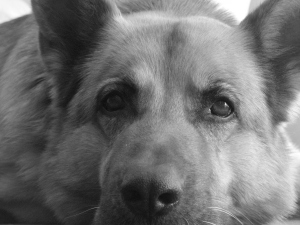‘Positive Police Dogs:Philosophy
At last you can get your hands on the first book in the series. Learn about the science of learning and about animal behaviour. The book sets out an ideology towards a style of training rather than being a how to manual but makes for very interesting reading and is vital in order to understand the language and ideas in the other books in the series. Just click HERE and follow the online instructions.
Also available are the next three books in the series. They are designed to be modular and How to raise a working puppy takes you through the steps of raising a puppy, and preparing it for further training. Patrol dog teaches the routines in prey drive and in Patrol dog 2 the role of the agitator becomes paramount in turning the dog from sport dog into street dog.





July 2, 2011 at 6:43 am
Great article!
October 18, 2011 at 12:42 pm
Hi,
I’m a dog trainer in the US…just received your book yesterday…more than half way through…it’s great!…you have a lovely way of illustrating points and explain learning theory in a user friendly manner. I’m really looking forward to the rest of the series.
(Is there any way to contact you off-line? I am very much interested in training police dogs using +R and am having trouble locating anyone with that particular skill set.)
Thanks,
Kristi Martin
ps. the You Tube videos are great as well!
February 10, 2013 at 9:07 pm
I have conducted 2 shock collar experiments using human volunteers. The first to map out how people experience shock at different levels on different parts of their bodies. The second consisted of the subject wearing the shock collar set to no more than 50% of the tolerable shock as defined in the first experiment. The subject was trained for maximum 10 minutes to do certain behaviors in a language they did not understand, with the tester using +R (praise), +P (single shocks to punish bad behavior) and -R (so-called escape/avoidance training). All sessions were video recorded and analysed afterwards for stress indications, including the the interview after each session.
The shock trainers were not amused at the results.
http://www.auf-den-hund-gekommen.net/-/experiment1.html
February 26, 2015 at 8:29 pm
Hi Guy,
I just stumbled upon your blog and am incredibly impressed with everything I have read here.
I am a student at Carroll College in Helena, MT, USA majoring in Anthrozoology (the study of the human-animal bond). We raise and train shelter dogs for a year and adopt them out at the end of the year. Many of them learn service tasks, but we currently have one training as a narcotics detector dog and another that is being considered for conservation work! We stick to positive reinforcement for all of our training, even for our reactive/dog-aggressive dogs. A few days ago, we had a demo from two K9 officers and their dogs. The corrections the dogs got were harsh, both were wearing e-collars and choke chains, and the reasons that the officers gave were old-school and unimpressive. It was very clear to me that with the power of their reinforcer (a canvas tug toy) they could have their dogs on perfect stimulus control instead of at odds with their handlers. To get the dog to out his toy, they had to choke the dog out so he couldn’t breathe and eventually let go. It was horrifying.
I am wondering if there is a way to contact you via email to see if you would like to Skype in and show/tell us the other side (the R+ side) of training high-drive dogs for the same work that these demo dogs were doing. We have had a service dog organization speak to us via Skype, too, which went very well. I think that this would go over splendidly with both my instructor (I am her teaching assistant) and my class, that was stunned by the dogs’ intensity but also confused by the officers’ handling methods.
If you are interested, please email me if you have the time. I would love to speak with you about this directly.
Thank you!
Lia Weber, KPA-CTP
lweber134@gmail.com
Carroll College
Helena, MT, USA
September 19, 2015 at 4:42 am
I wholeheartedly agree with your philosophies and methods. Very well articulated. I would like to put your link into my website with your permission
September 27, 2015 at 5:09 pm
Hi Jay. Feel free to link to my site.